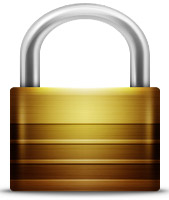
Don't be left vulnerable to attacks!
Protect yourself and UCSF by accepting only valid certificates!
Now that we have your attention...
There are two types of certificates that protect UCSF data and user data: website certificates and wireless certificates.
Website Certificates
Valid website certificates are used as:
How do I know if it's a valid website certificate? | Wireless Certificates
Wireless certificates are used as:
How do I know if it's a valid wireless certificate? |
The purposes of this page are:
- To raise awareness surrounding Secure Sockets Layer (SSL) certificates and their uses
- To explain what can make certificates invalid
- To describe possible consequences of accepting invalid certificates
What does SSL protocol do?
Secure Sockets Layer (SSL) protocol creates a secure (encrypted) connection between a client and a server.
A valid SSL certificate is used as proof of identity for a server and also secures the connection between the server and the client.
An SSL certificate protects information being exchanged so that only the intended recipient can read and access the information.
A valid certificate will protect UCSF data, such as patient data and account information, along with personal data such as credit card numbers, social security numbers and other sensitive information.
What's the problem with an invalid certificate, and how can I prevent it?
SSL certificates ensure that the information being exchanged is encrypted, making it harder for attackers to steal that information.
An invalid certificate does not protect this data, so it may allow an attacker to intercept the information being exchanged.
When in doubt about the validity of a certificate, contact your local IT support representative or the IT Service Desk to verify its legitimacy.
What can invalidate an SSL certificate?
There are a number of reasons why an SSL certificate may be invalid, including the following:
Self-signed certificate – This is a certificate not verified by a certificate authority. Self-signed certificates do not validate the identity of the web server.
If you would like a certificate from a certificate authority, UCSF provides InCommon SSL certificates for all UCSF, free of charge.
If you are a server administrator, you can apply for an InCommon SSL: Overview of UCSF's SSL Certificate Service.
Expired certificate – This certificate may have been issued by a certificate authority, but it has expired and is no longer valid.
Revoked certificate – This certificate is no longer valid from the certificate authority. It's possible that the private key of the server was compromised and has been revoked by the certificate authority.